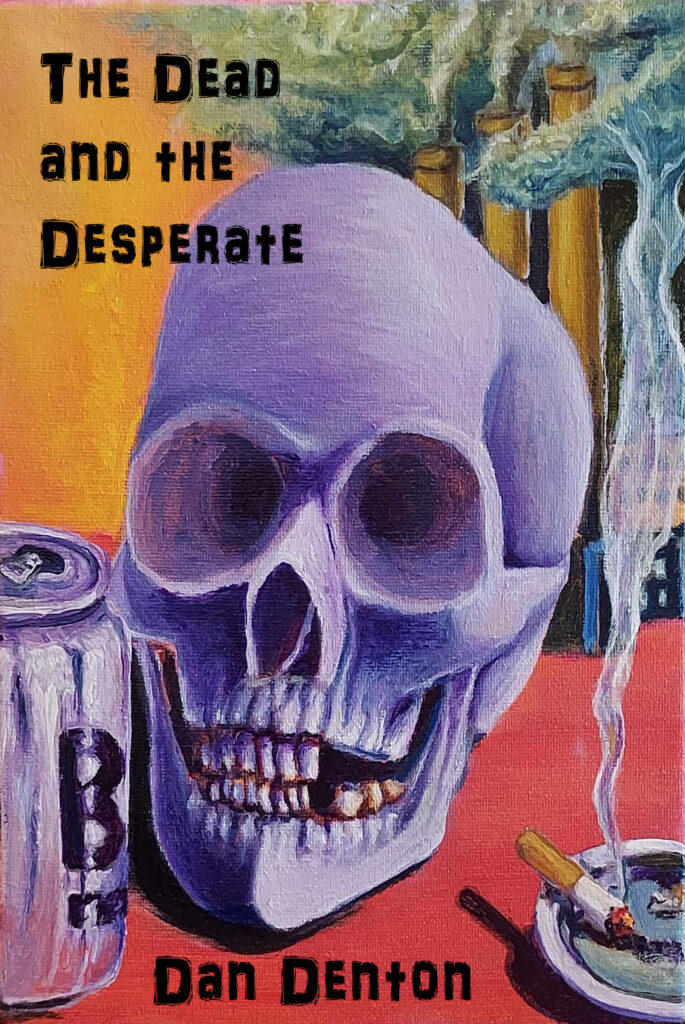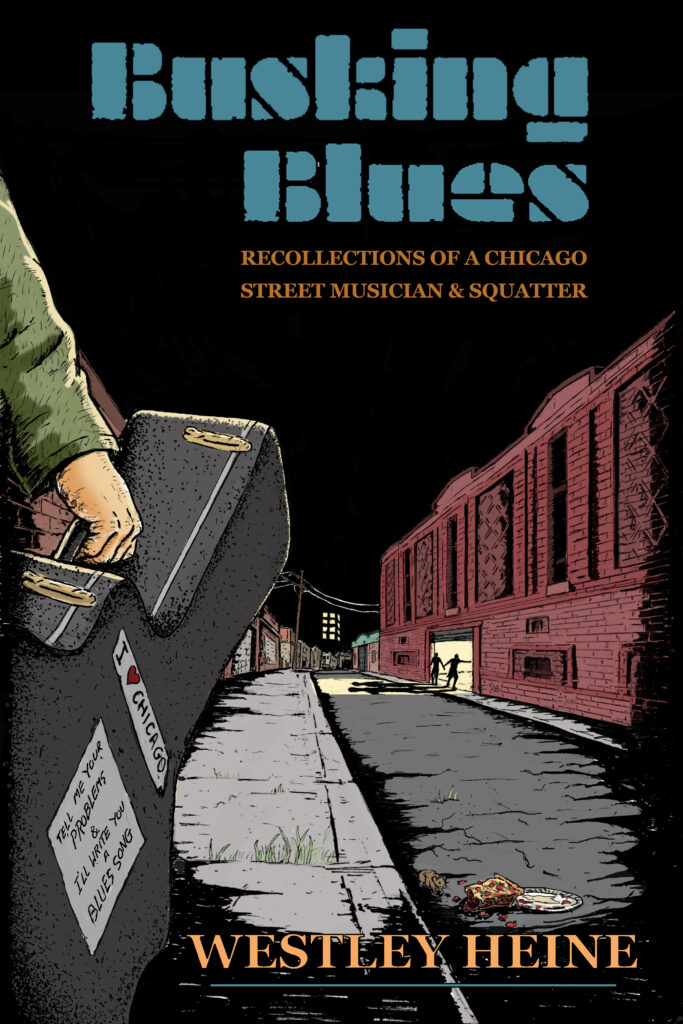Review of Michele McDannold’s By Plane, Train, or Coincidence.
“Can you tell me where the yellow brick road goes
when unaccompanied
by red sequined shoes?”
–from “cityscapes while sitting on a cold, cold stone”
Reading Michele McDannold’s latest poetry collection, By Plane, Train or
Coincidence (on the title page, on my personal, signed, copy McDannold has added “or
any means necessary”—which is also the revolutionary’s credo) I am reminded of an
interview I conducted years ago with a then prominent poet who, like McDannold, came
from economic disadvantage and whose poetry, like McDannold’s poetry, carries the
born-into-disadvantage person’s outraged sense of fairness and unfairness, justice and
injustice. “Find another way to make money / invent new ways to stalk your lover / start a
diet fad / marry a rich man / kill em with your good looks and big tits / don’t take a penny
/ dig graves for a living / with your fierce competitive attitude / sell, sell, sell / aim high /
shoot low / find an airfield saturated in hair spray / tell the whole world / about the mood
you’re in / in other words / lie, lie, lie” writes McDannold in “Friendly Advice”. This is the
outrage of the disadvantaged witnessing the corruptions that create cultural success.
(Another reviewer might prefer to call it McDannold’s “comedy”.) This is the fire out
from which dance the sparks of McDannold’s poems. (Another reviewer might prefer to
call it McDannold’s “wound”.) “Hold on only / to what’s / important,” writes McDannold
elsewhere. “Love you.” By which she means yourself.
In that same long-ago interview the (then) prominent poet also insisted she had
formally “married” her “muse,” when she was 18 years old, in a no-kidding, third-eye-
wide, sacred-ceremony conducted, impromptu, in a bus terminal, at 2 a.m., in San Jose,
California, where the mystic opportunity, in the form of mystic signs and visions, seemed
to be presenting itself. “There was a service. I made vows,” the poet declared. One does
not ask more detail from such an anecdote. At least I did not. These private affairs of the
spirit are the real stuff of our human lives and language descriptors of their
manifestations tend to diminish, rather than augment, their verity and also to open the
doors for mockery. I do wonder, however, given the intensity and devotion with which
McDannold attends every line of her poetry, has any such experience as “mystic
marriage” ever befallen her? It would not surprise me. McDannold’s poetry, whatever
else it may be communicating at any given time, possesses that constancy of ferocity
which is the mark of the zealot. “God loves the gamblers,” the Sufi mystic Rumi wrote
somewhere. “Gamble everything for love, if you’re a true human being. / If not, leave
this gathering.”
(By “love,” Rumi meant “poetry.” In mystic lexicon the words are generally
interchangeable.)
In, “the idea,” when McDannold writes,
“I forgot how to write
& remembered it is just letters
to the best in us willing to listen &
when there’s no one there
aren’t we forced then
to learn the most”
she is revealing precisely how such a gambler thinks. When you are down to your last
penny, your very last penny, bet that one too. McDannold is a gambling poet. There is a
lot riding on her every line. They tremble with what they are upholding. All
McDannold’s lived experience, to the moment of the composition, seems to be riding
upon each line. Another reviewer might call this trembling suspension McDannold’s
“poet craft.” Another reviewer might even surmise a cautious, fastidious, poet behind the
poems. I see fever and something like desperation. I see Rumi’s gambler. I see someone
willing to bet it all on just one more poem. The next one. The one that had been waiting,
all the while, on the purity of our faith, to make its glorious appearance.
McDannold herself says, in “the science of breaking up”: “A worked-over poem can
be good / but can it be honest.”
Notice there is no question mark. For McDannold (at least unconsciously) the
question is rhetorical.
Commenting on a romantic disaster I had recently endured, a poet friend dryly
observed I should have told my prospective romantic partner I was already spoken for.
“A poet’s primary relationship is with their poetry. Between the inspired artist and their
chosen art, a wedding has already taken place. Perhaps even before birth. In the other
place,” my pedantic friend clarified.
I didn’t deny this observation when my friend made it and I don’t deny it now.
Poetry fills the space in me which for many others is filled by romantic love. I rush to say
it does not fill the space which is filled by sexual congress but sexual congress is not
love, is it? Sexual congress is not even, always, intimate. Poetry, though, is every bit as
deep and consuming and rewarding as romantic love and for that reason, those who are
inhabited by poetry may struggle to find room in themselves for the more traditional sorts
of romantic relationships (boy meets boy, girl meets girl, and so on) so deeply prized and
commended in our culture. The romance of life itself, the romance of language, the
romance of inspiration and of ideas…those become “the beloved”…fair warning to those
foolish enough to fall in love with a poet…
Nonetheless, a number of the poems in McDannold’s collection are (or seem to
be) girl-boy love poems, or poems of yearning for that girl-boy love. But are they, really?
In “what a fucking life, right?” McDannold writes, “Reduced to the / communications /
over wires / across time zones // I cannot find / the map / that says // you / are / here.”
Is this a poem about a human lover gone far away? Out of reach? Too far to
touch? It seems so, superficially. But really, isn’t it a poem about an understanding gone
so far from one’s pen? Isn’t it a poem written in longing for a muse? “Where is the muse
of my poetry?” the poet is asking. Does the poet realize this? Whether the poet does or
does not realize, does not matter, presumably. Only what the poem realizes, matters. That
is how the most estimable poetry is written. Probably, this is how McDannold’s most
estimable poems are written. With the poet formulating earthly matters and the poem
revealing spiritual ways. (“watched a flower slowly bloom / from the front porch / it takes
a long time /it’s still not done / i felt, once again, / the blooming of heartache / surround
my lungs / and settle in. // it takes a long time / it’s still not done.”) This is called synergy
in the board rooms but in poetry it is pure scintillation—if and when one is lucky enough
to stumble upon it. Michele’s love poems meander, idly, flow on, idly, then suddenly
tumble into lyrical turbulence, same as a meandering river flows to the lip of a falls then
tumbles suddenly over.
“the filthiness comes so very
naturally
inside his mind
and manifests via text
she is the only thing that is bad about me
we’re so good at delusions”
declares the narrator in the opening six lines of, “thanks for finishing it for me.”
Meandering, as I said, river-like, the poem flows to the ledge of a falls than, whoops,
takes a sudden plunge into the psychological turbulence, the underwater language (the
dream language) of “we’re so good at delusions.” One could almost suggest the meandering
ways of the river had been a wile meant to help realize maximum psychic impact from
sudden tumble over the falls. A neat trick of crafting, if only one could craft it over and
over.
Here is a truism courtesy of the spiritual masters who brought us the poetry of
Rilke and whom Rilke called his “angels.” (“We are not angels, but we are bound to be,”
one messenger told him.) The insight of a poem, when the poem has been written by a
“real” poet, is inevitably more acute than the insight of the “real” poet who writes it.
Since the poem is being emptied onto the page from the dark of the unconscious. Since
the knowing of the poem arises, in a sense, from the unknowing of the poet.
This is the understanding one comes to in reading McDannold’s poems. They are
fighting to emerge from unconsciousness. They still have one toe in that deep, dark pool.
As the poet Robert Bly once remarked of the poems of someone or other, “they are still
wet with birth fluids.” They are struggling to extricate themselves from chaos. They are
born in chains so the poet can unchain them. In “Curious Things,” McDannold writes, “I
find curious connections / in strings / words / the dog / licking his paws / the way his
head moves / bugs / these things make me / love / these things make me / sick.”
McDannold writes that she “finds” something behind these connections. Things
that make her “love,” things that make her “sick.” What she could also say is that she
“feels” something behind these connections and what she feels are the deeper connections
being forged by her own unconscious that will create the poetry (which IS the “love”, or
which IS the “sick,”) the poet must offer the world. The deepest of what there is in the
poet to offer. Their innermost experience. That is what a poet does. If need be, to their
dying breath. They feel their way to the poem that is trying to be written. That is what
McDannold is doing every time she lifts her pen and drops its point on the page of her
notebook. She is feeling her way to the poem that wants to be written.) “Find limits by
pushing past” McDannold writes. Searching for “the kiss that linger[s] longer than it
lasts,” McDannold writes—a perfect description of the poem as captured
inspiration—caged bird—time’s body…
“There is a home in the heart of every traveler,” writes McDannold. Poetry is
that home for McDannold. A strange sort of domicile, poetry, with its shifting
foundations, and its trap doors falling open beneath one’s feet. But, at least the roof’s
been blown off, so you can see the stars at night, the shifting cloud formations by day.
“If I told you,” writes McDannold,
“you wouldn’t believe me,
so I just poem it.”



